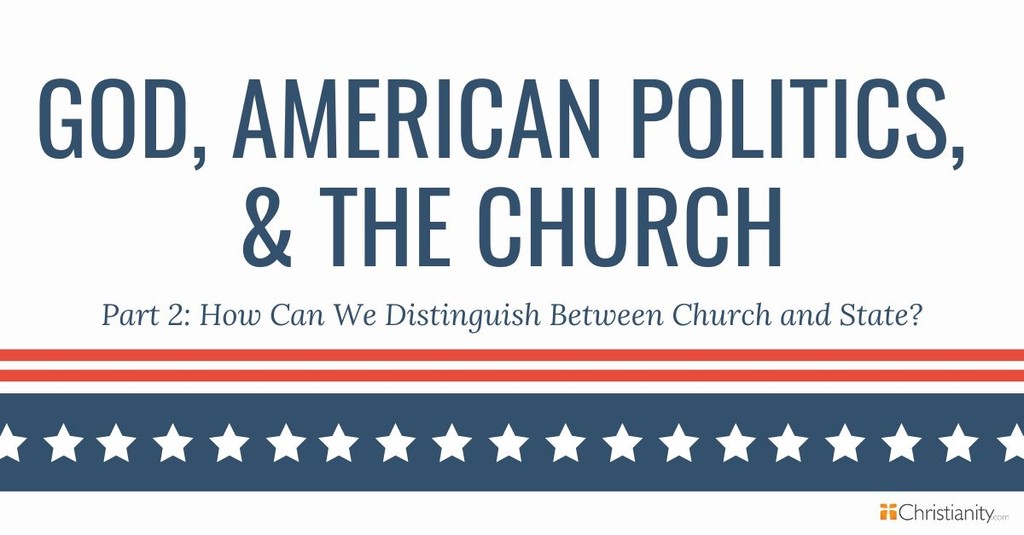
As Christians, we have committed to live under the authority of Jesus Christ and have been sent to expand the community of women and men who recognize Christ’s authority. Christ has been given “all authority on heaven and earth” (Matt 28:18) whether we (or others) recognize it or not. Christ’s authority is a given…it isn’t up for debate. As such, in Serpents and Doves, I suggest, “Because ‘Jesus is Lord’ (1 Cor 12:3) is a true theological claim, it is also an authoritative political claim.”
If the claim “Jesus is Lord” is both theological and political, the Christian proclamation of that claim is both theological and political as well. By living under the authority of Christ and speaking the truth, we confront the governing authorities God has established (Rom 13:1) with the delegated nature of the authority they exercise. They serve at Christ’s pleasure.
Unfortunately, the governing authorities of the day have a way of claiming more authority than they have been given. At times, they do so without us noticing. For instance, sociologist Robert Bellah notes that American civil religion “borrowed selectively from the religious tradition [Christianity] in such a way that the average American saw no conflict between the two. In this way, the civil religion was able to build up without any bitter struggle with the church powerful symbols of national solidarity and to mobilize deep levels of personal motivation for the attainment of national goals.” The subtle incorporation of language mimicking Christianity and the application of a select set of biblical passages to the United States has allowed the lines between Christianity and American civil religion to be blurred.
Photo Credit: SWN Design
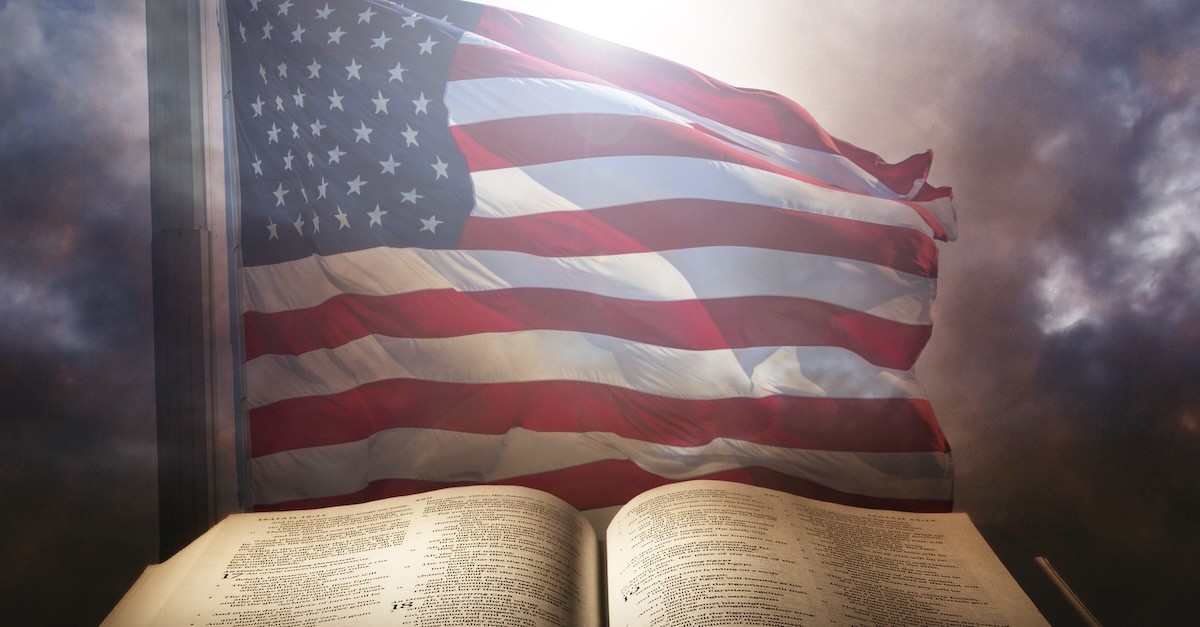
The Role of Discipleship in Distinguishing Church and State
So how can Christians begin to untangle Christianity from America and American civil religion? The simple answer is discipleship. Discipleship calls us to recognize Christ as having the final authority for our life and faith. Baptism in the name of the Father, Son, and Spirit commits disciples to the Triune God rather than to the one who happens to perform the baptismal ritual (cf. 1 Cor 1:10-17). Learning to observe all Christ commanded precludes the possibility of adopting some other teaching that seeks to diminish, ignore, or otherwise undermine the authority of Christ. It is through discipleship that we learn to live under Christ’s authority.
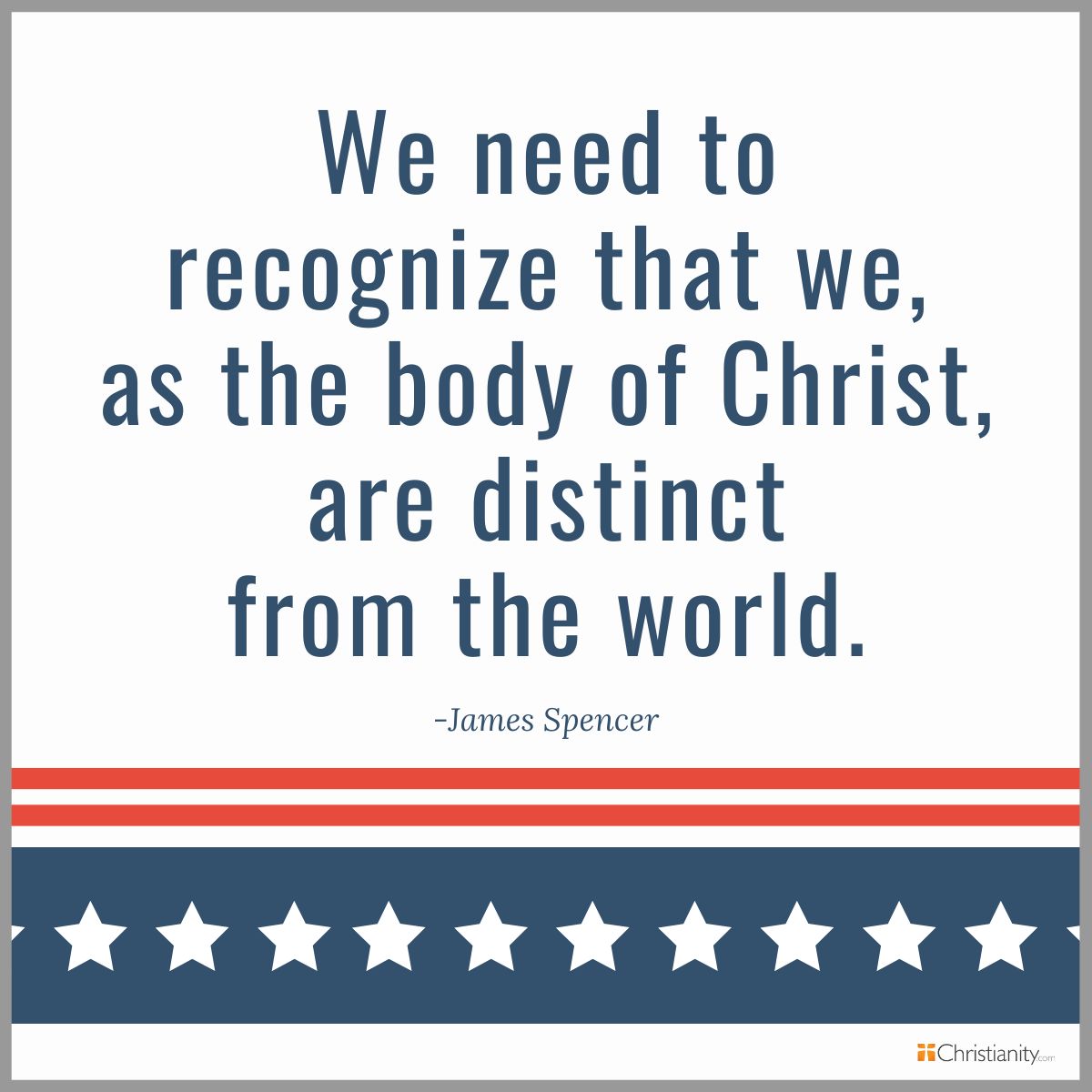
Christian discipleship involves resistance. In Christian Resistance, I argue, “the principalities and powers with which we interact press us to ‘convert’ so that we love what they desire us to love in the way they desire us to love it.” Part of our job as Christians is to resist that pressure. Like a dam keeping its shape despite the massive pressure exerted by the water it is holding back, Christians need to hold their shape despite the pressures of the world. Christian resistance isn’t about changing the culture. It isn’t about amassing enough political power to enforce some moral vision. It is about living out the theological and political claim that “Jesus is Lord.”
To resist, we need a solid footing. If Christians are going to resist the pressure to love what the world desires us to love in the way it desires us to love it, we have to understand who we are. We need to recognize that we, as the body of Christ, are distinct from the world.
Photo Credit: ©GettyImages/Javier_Art_Photography

The Church Is Ontologically Distinct from the Nation-State
“Ontologically” is just a fancy way of saying that the Church is something intrinsically different than the nation-state. To underscore the tensions associated with this distinction, consider how you might respond if people began to refer to America as “the body of Christ.” While we have become accustomed to hearing America described as a “Christian nation” or a “city on a hill,” my sense is that most Christians would feel far less comfortable describing our nation as the “body of Christ.” In part, that is because the “body of Christ” has retained a less generic, more theological meaning than, for instance, “Christian.” As I’ve noted elsewhere, I find it lamentable that Christians have “allowed ‘Christian’ to take on meanings that have no particular theological content, but, instead, serve a national narrative.” It is lamentable because the Church is constituted by Christ “in whom are hidden all the treasure of wisdom and knowledge” (Col 2:3).
To understand the significance of this first proposition, we need to understand what we mean by two basic terms: “nation-state” and “church.”
Photo Credit: ©Getty Images/Ehrlif
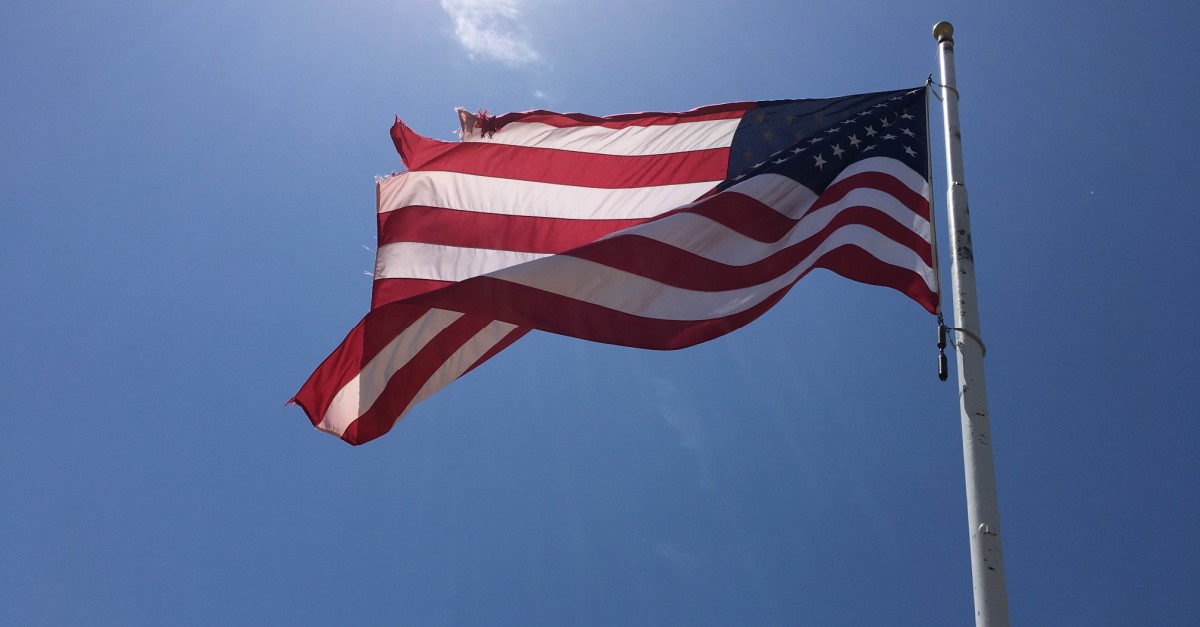
What Is a Nation-State?
In Imagined Communities, Benedict Anderson suggests that a nation “is an imagined political community—and imagined as both inherently limited and sovereign.” The limitations of a given nation-state are at least geographic and temporal. As we see in Acts, God “determined allotted periods [of the nations] and the boundaries of their dwelling place” (17:26). The nation-state is not built to last. The nation-state’s sovereignty is also limited both by the presence of other nation-states and, more importantly, by Christ’s authority over all things.
Anderson goes on to speak of the “deep, horizontal comradeship” and “fraternity” that prompt individuals to embrace common narrative and political will. The nation-state is, in this sense, constituted by a collection of individuals and groups who agree (willingly or under coercion) to live as “good citizens” of a given imagined community.
A nation-state may be roughly understood as the realm over which specific governing authorities are appointed. These governing authorities are established by God (Rom 13:1) and, thus, are not a law unto themselves. They exist, whether they believe they do or not, under the authority of Christ. In this sense, the nation-state and the church have something in common: both sit under the authority of Christ. While they both sit under Christ, the nation-state often pursues its own agenda and develops its own political will. At times, that political will may align with and encourage Christian proclamation. At other times, that political will may oppose the church. At no time, however, is the nation-state identical to the church.
Photo Credit: Dori Drabek/Unsplash
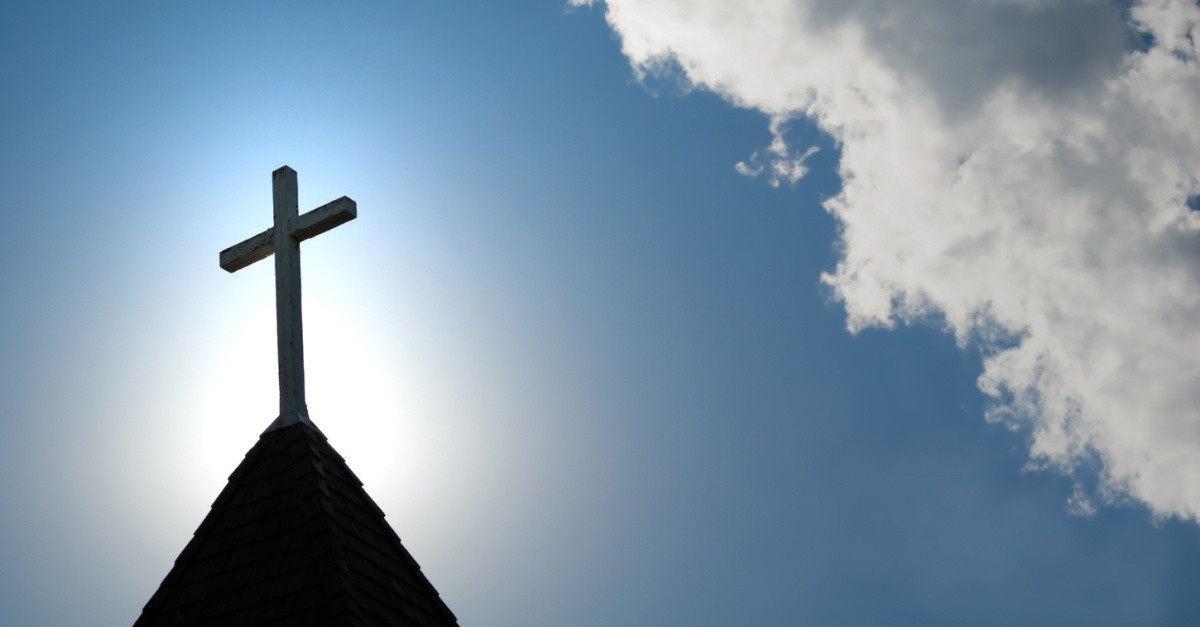
What Is the Church?
The church is the mixed multitude of Jews and non-Jews united in and committed to following Christ, who, as Daniel I. Block writes, engages “reverential human acts of submission and homage before the divine Sovereign [the Triune God] in response to his gracious revelation of himself and in accord with his will.” This way of understanding the church distinguishes the church from the nation-state by (1) rooting the church’s being in Christ and (2) defining the church’s identity in terms of worship.
Whatever practical implications this distinction may have (and there are many), we should not dismiss the more basic point. God has distinguished the church from the world and the governing authorities he has established within it. As such, the Barmen Declaration, which was written as a response to the German Evangelical Church’s endorsement of the Nazis, is instructive for us today. The basic theological challenge it sought to address was that the church could be self-determining…that it could choose a “way” other than Christ. Instead, the Barmen Declaration notes, “We reject the false doctrine, as though the church were permitted to abandon the form of its message and order to its own pleasure or to changes in prevailing ideological and political convictions.”
To resist today’s political pressures, we need to recognize that the church is not a voluntary society whose direction is determined by its members. Instead, the church is the community of women and men who have committed to bear the name of the Triune God in a worthy manner by learning to live under Christ’s authority.
Photo Credit: ©Getty Images/wwing
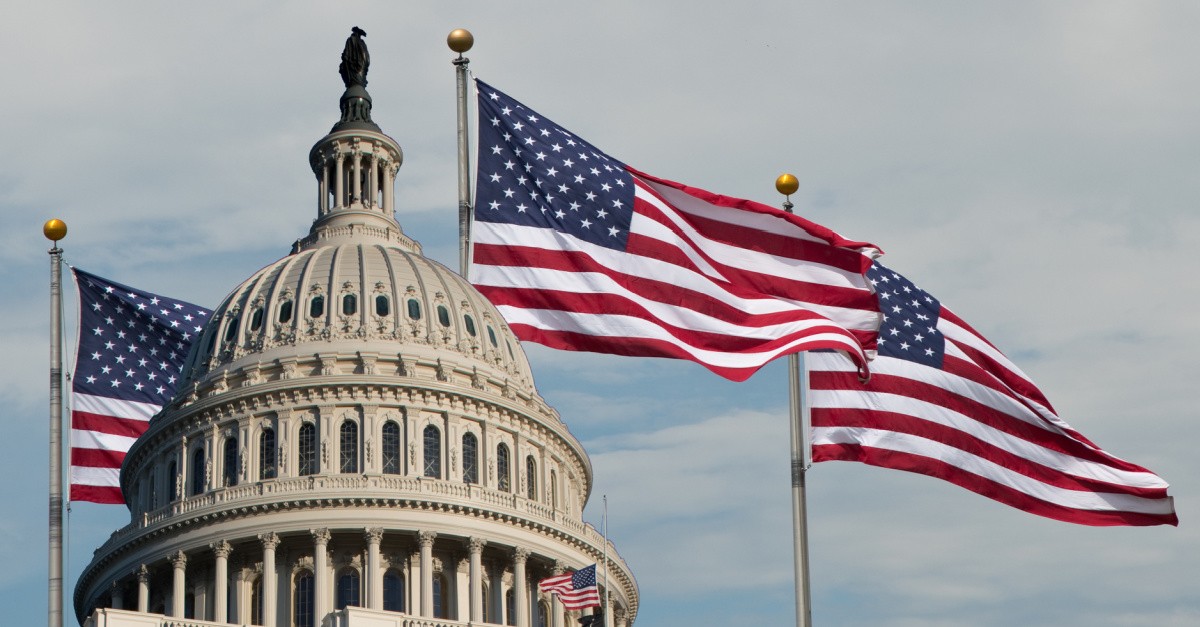
How the Distinction between Church and the Nation-State Shapes Christian Resistance
Christian Resistance requires Christians to hold their shape despite the pressures of the world. To hold our shape, we have to understand what that shape is. There have to be clear boundaries between us and the world. Maintaining the distinction between the church and the nation-state (and other entities in the world) means that Christians have the opportunity to be strange in the right ways.
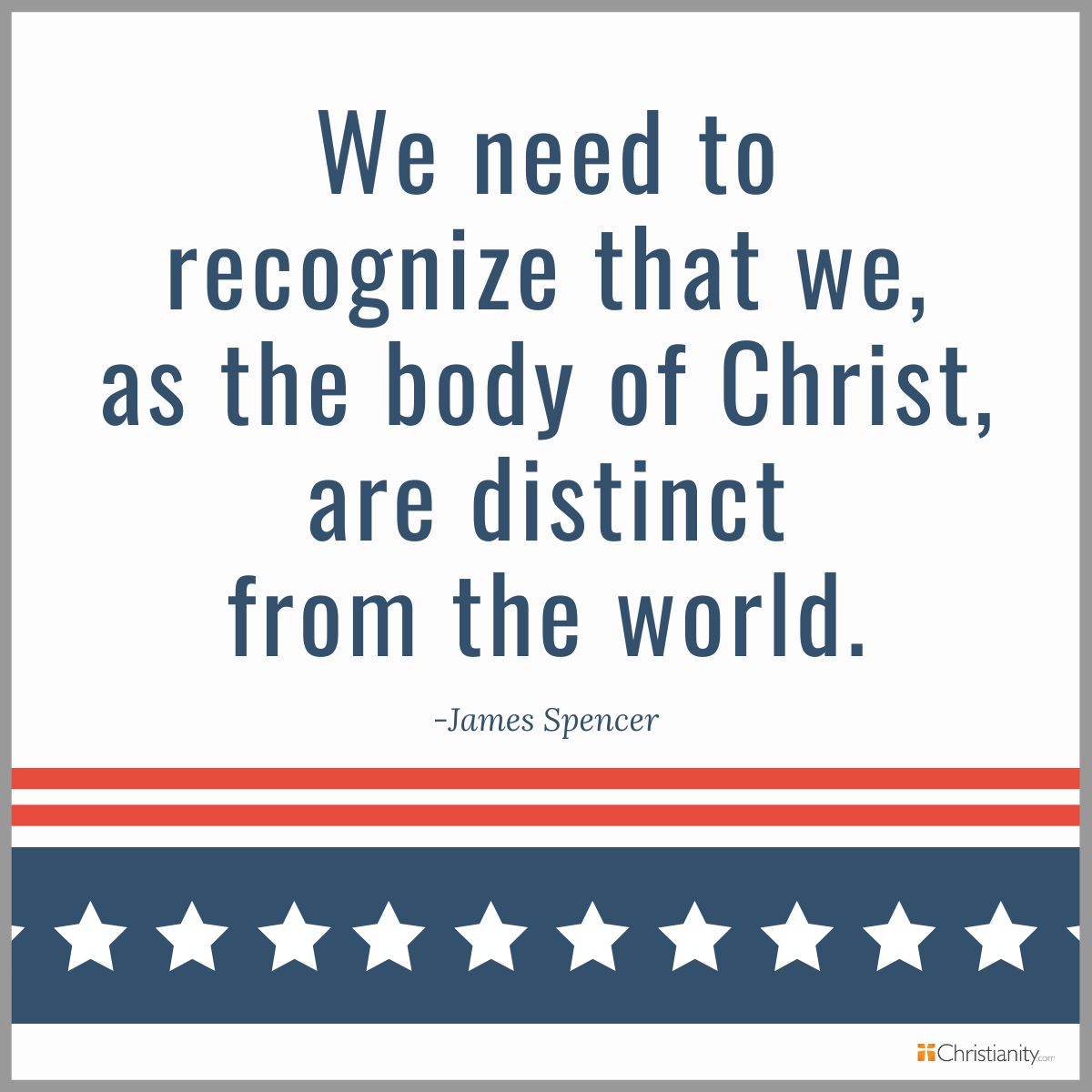
At its most basic level, the distinction matters because God has made it. God has made the church distinct and marked it off so that it may point to and glorify the Triune God (1 Pet 2:19-10). As the church learns to live on God’s terms without compromise, it proclaims Jesus as Lord. It is only when the church confronts the world on God’s terms that the theological and political message of the gospel may be clearly understood. We don’t proclaim “Jesus is Lord” while undermining Christ’s authority by, for instance, relegating our faith to the private sphere or assuming that following Christ isn’t our most effective strategy at a given moment.
The distinction between church and nation-state is crucial because the two can never merge. Clearly, the church interacts within the nation-state just as it interacts with other institutions. However, the church must always remember that, despite certain common concerns and the potential for cooperation at varying levels, the church does not exist to serve the nation-state. The church exists to serve God.
Click here to read Part 1, "3 Meaningful Actions Christians Can Take for Our Nation"
Photo Credit: ©Getty Images/Douglas Rissing
Click here to read Part 1: 3 Meaningful Actions Christians Can Take for Our Nation
Click here to read Part 2: How Can We Distinguish between Church and State?
Click here to read Part 3: Thinking Like a Christian This Election Season
Click here to read Part 4: Is Christian Political Participation a Sacred Duty or a Civil Right?
Click here to read Part 5: What Role Should Law Play in Christian Political Participation?

Originally published Wednesday, 24 July 2024.
